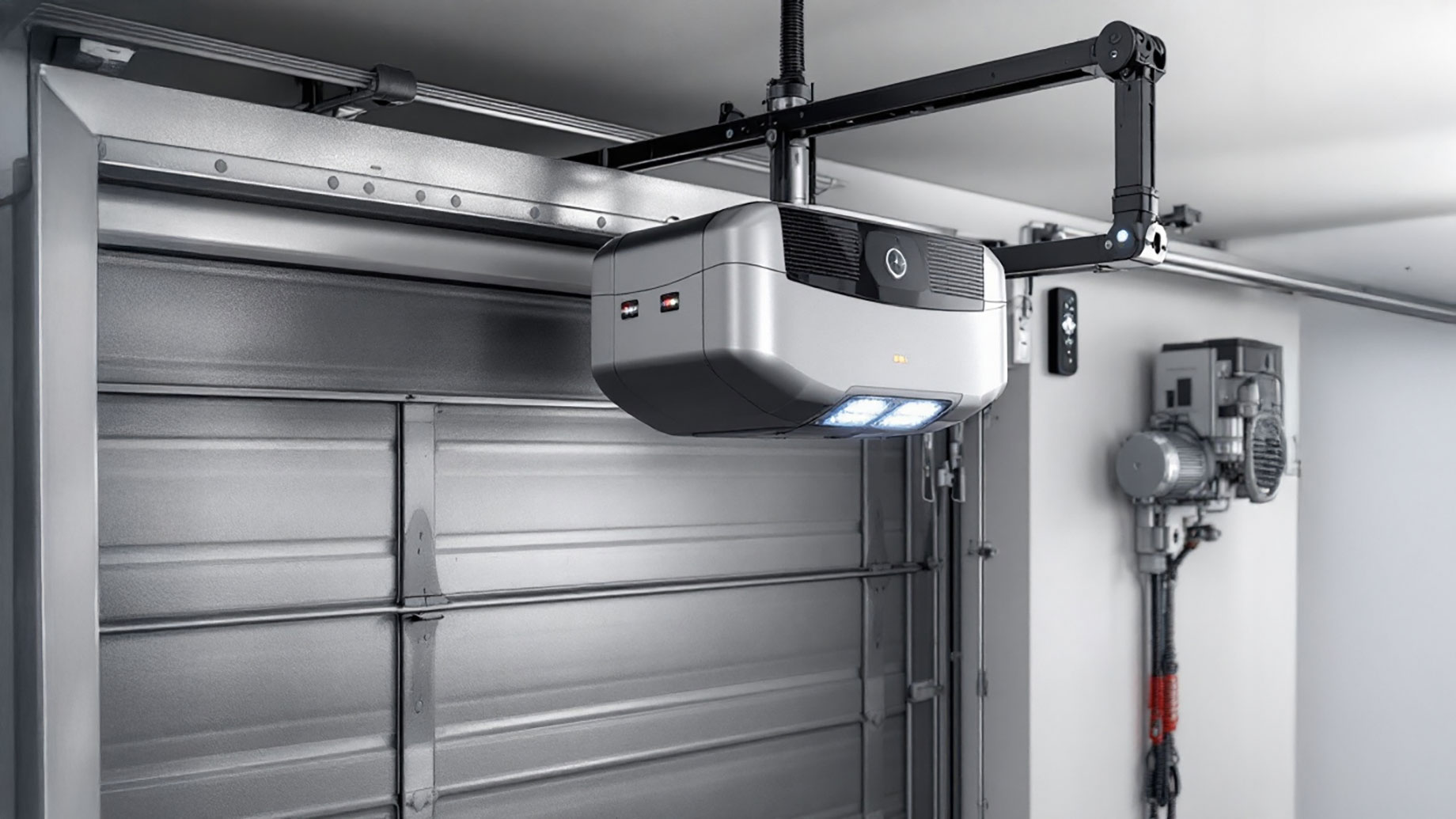
A garage door opener is one of those household conveniences we often take for granted—until it stops working. Whether your door refuses to open, makes strange noises, or only works intermittently, a malfunctioning opener can be a frustrating and sometimes urgent problem.
Before you panic or assume you need a costly replacement, let’s walk through some of the most common garage door opener issues and how to fix them quickly.
1. The Garage Door Won’t Respond to the Remote or Wall Switch
One of the most frustrating issues is pressing the remote or wall button and getting no response. Before assuming the worst, check these simple fixes:
Quick Fixes:
- Check the Power Source – Make sure the opener is plugged in. If it is, check for a tripped circuit breaker in your home’s electrical panel.
- Replace the Remote Batteries – If the wall switch works but the remote doesn’t, swap out the remote’s batteries and try again.
- Reprogram the Remote – Some openers may lose their remote connection after a power outage. Refer to the manual to reprogram it.
If the opener still doesn’t respond, there could be an issue with the logic board or internal wiring. At this point, it’s best to call a garage door repair service for expert help.
2. The Garage Door Opens, But Won’t Close
If your garage door opens just fine but refuses to close, the problem likely lies with the safety sensors.
Quick Fixes:
- Inspect the Sensors – Located near the bottom of the door tracks, these sensors detect obstructions. If they are dirty, misaligned, or blocked, the door won’t close.
- Clean and Adjust – Use a soft cloth to wipe off any dirt or debris. If the sensor lights aren’t solid, adjust them until they align properly.
- Check for Sunlight Interference – Direct sunlight can sometimes interfere with sensor signals. Try shielding the sensors with small pieces of cardboard.
If none of these fixes work, you may need a professional from AA Garage Door, LLC to inspect the sensors and wiring.
3. The Garage Door Moves Slowly or Stops Midway
If your garage door opens sluggishly or stops before reaching full height, the issue could be related to the opener’s force settings, track obstructions, or worn-out parts.
Quick Fixes:
- Lubricate the Tracks and Rollers – Lack of lubrication can cause resistance. Use a silicone-based garage door lubricant to keep things running smoothly.
- Adjust the Force Settings – Most garage door openers have a force setting that controls how much power is applied. If the setting is too low, the door may stop prematurely. Refer to your manual for adjustments.
- Check for Track Obstructions – Small debris or bent tracks can slow down the door’s movement. Clear any obstructions and straighten minor bends carefully.
If the problem persists, it could be due to worn-out springs or motor issues, which require a professional assessment.
4. The Garage Door Opener Makes Unusual Noises
Garage door openers aren’t whisper-quiet, but loud grinding, rattling, or squeaking noises usually indicate a mechanical problem.
Quick Fixes:
- Tighten Loose Hardware – Check for loose bolts or brackets on the opener and tracks. Tightening them can reduce vibrations.
- Lubricate Moving Parts – A loud opener may need lubrication on its chain, belt, or screw drive mechanism. Avoid using WD-40—stick to a garage door lubricant instead.
- Check the Motor Gears – Worn-out motor gears can make a grinding noise. If you suspect this, you’ll likely need a professional repair or replacement.
5. The Garage Door Reverses Right After Touching the Floor
If your garage door reaches the ground and immediately goes back up, it could be due to an issue with the limit switch settings.
Quick Fixes:
- Adjust the Limit Settings – The limit switch tells the opener when to stop. If it’s set too high, the opener may think there’s an obstruction. Look for adjustment dials on the opener unit and tweak them slightly.
- Check for Obstructions – A small object or buildup on the garage floor near the sensors can trick the opener into reversing. Clear any debris.
If the problem continues, calling a garage door repair services provider can prevent unnecessary strain on your opener.
When to Call a Professional
While many garage door opener problems have DIY solutions, some require professional intervention. Call a garage door repair specialist if:
- The motor is unresponsive even after power checks.
- You suspect a logic board failure (circuitry issues).
- The springs or cables are broken—these can be dangerous to handle.
- The door is off-track or misaligned, requiring realignment.
If your garage door opener isn’t working as it should, AA Garage Door, LLC offers expert repair services to get it back in top shape quickly.
Final Thoughts
Garage door openers are built to last, but like any mechanical system, they require maintenance and occasional repairs. By knowing how to troubleshoot common issues and recognizing when to call a professional, you can save time, money, and frustration.
For fast and reliable garage door repair services, consider reaching out to a trusted local expert. A properly working garage door not only adds convenience but also enhances your home’s security and efficiency.
View Your Expert Garage Door Services in St. Paul in a full screen map
Media Contact:
- Company Name: AA Garage Door, LLC
- Spokesperson: David Sands
- Phone: (651) 702-1420
- Address: 2136 Ford Pkwy #5022
- City: St Paul
- State: MN
- ZIP Code: 55116
- Country: United States
- Website: https://www.aagaragedoor.com/service-cities/st-paul/
- Social Media: